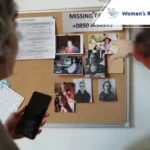Summary
Human trafficking is not only an international crisis—it’s a serious issue here in California. Victims are exploited in agriculture, hospitality, sex trade, and domestic work. This article explains why misconceptions persist, provides local statistics, highlights high-risk industries, and offers practical ways Californians can report, prevent, and fight trafficking.
Table of Contents
When people hear the term human trafficking, many imagine it as a crisis that only occurs in distant countries. But the reality is that it’s happening right here in California, often hidden in plain sight.

From Los Angeles to rural counties, victims are exploited for sex trafficking, labor trafficking, and forced labor. Understanding how trafficking operates locally is the first step in protecting our communities and supporting survivors.
This article explores why trafficking is often misunderstood, where it occurs in California, and what each of us can do to help.
Why Many Believe Trafficking Only Happens Overseas
Media portrayals often emphasize trafficking abroad, making many in the United States think it’s not a local issue. However, California is one of the nation’s largest hubs for sex trafficking cases and labor trafficking. This misconception isolates victims and reduces public pressure on law enforcement to intervene.
Human Trafficking Statistics in California
The National Human Trafficking Hotline (NHTH) reports that California is one of the states with high numbers in the U.S. for its reported cases.
- Over 1,700 cases with 3,603 victims were reported in 2024, with the majority involving sex trafficking at more than 1,000 cases.
- 14% involved forced labor, often in agriculture or the commercial sex industry.
- Victims often experience emotional distress, sexual abuse, and domestic violence, making recovery difficult without support.
California’s large population and economy create environments where traffickers exploit vulnerable people in silence.
Local Industries Where Trafficking Occurs
The NHTH data also showed that trafficking is often tied to industries where oversight is limited:
- Domestic Work – Victims may be trapped as housekeepers or caregivers without legal protections.
- Hospitality & Commercial Sex Industry – Hotels, motels, and even restaurants are used for sexual exploitation and commercial sexual exploitation.
- Agriculture & Labor Trafficking – Migrant workers face threats, withheld pay, and unsafe conditions.
- Los Angeles Sex Trade – LA is a hub for child pornography, sex trafficking, and sexual abuse, with traffickers targeting runaways and vulnerable youth.
Sex Trafficking and Sexual Exploitation in CA
California sees high levels of sexual exploitation, sexual abuse, and child pornography cases. Many victims are minors manipulated through threats or deception.
Survivors often endure long-term trauma from sexual assault, domestic violence, and repeated exploitation in the commercial sex industry. Recognizing signs of trafficking can save lives.
How Federal Law and Local Law Enforcement Respond
The Trafficking Victims Protection Act (TVPA) is the cornerstone of federal law against trafficking. It allows survivors to seek protection and legal relief. In California, law enforcement collaborates with prosecutors and victim advocates to investigate crimes and pursue criminal charges.
Survivors may also work with a defense attorney or criminal defense team when navigating the legal process. Unfortunately, prosecution alone is not enough. Many survivors also need civil legal remedies, emotional support, and medical care to heal fully.
Why Community Awareness Matters
Trafficking thrives in secrecy. Without awareness, victims remain invisible. Communities can help by:
- Recognizing warning signs like isolation, lack of freedom, or fear of authorities.
- Supporting outreach programs for survivors of sex trafficking and forced labor.
- Demanding accountability in industries tied to commercial sexual exploitation.
How Californians Can Report and Prevent Trafficking
Every Californian has a role in ending trafficking:
- Report immediately: Call the National Human Trafficking Hotline at 1-888-373-7888 or text 233733.
- Contact law enforcement if you suspect an active case in your community.
- Seek help from a human trafficking attorney in California for guidance on survivor rights, the legal process, and justice.
- Advocate locally: Educate schools, businesses, and faith groups to recognize risks.
You Are NOT Alone. We Are Here For You.
Human trafficking is not only a global problem—it’s deeply rooted in California, from Los Angeles to smaller towns. Victims endure sex trafficking, forced labor, sexual assault, and emotional distress, often hidden within legitimate industries. Awareness, reporting, and legal action under federal law, like the Trafficking Victims Protection Act, are crucial.
Women’s Rights Group can connect you or your loved one with compassionate resources and legal advocacy. Contact us today for a free and confidential consultation with an experienced human trafficking attorney in California who can guide you through the next steps to justice and recovery.






